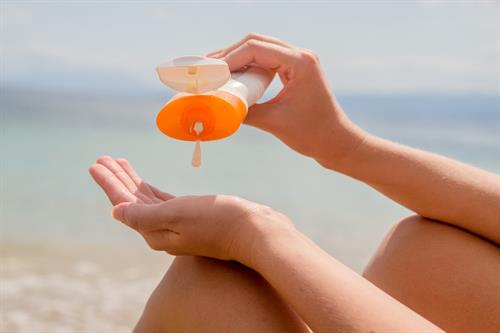Choosing a Proper Sunscreen

In Texas, the summer heat can be oppressive. Some only reach for the sunscreen when they’re at the lake or the pool trying to beat the heat, but it should be part of your daily routine. When it comes to summer days spent mostly outdoors, here's how to choose the perfect protection for you and your family.
Look for “Broad Spectrum” Protection
According to the American Cancer Society, while all sunscreens protect against UVB rays, a "broad spectrum" protects against UVA and UVB rays and has gone through specific testing. Those sunscreens not labeled “broad spectrum” will protect you from sunburn but will not defend against UVA ray exposure and must be labeled as such. UVA exposure can also contribute to skin cancer and premature aging.
Water-Resistant Isn’t Waterproof
One common misconception is that once you apply, you can go about your day. This is when unexpected sunburns often occur. Though water-resistant SPF can last a bit longer, no sunscreen is sweat or waterproof. You should always reapply every 40-80 minutes, especially if you’re sweating or swimming.
The SPF Level Matters
SPF stands for sun protection factor, and the number is the level of protection. Generally, the higher the number, the more protection against UVB rays, until you reach SPF 30. The difference in anything higher than 30 is minimal, and it’s important to know that sunscreen doesn’t protect you 100 %. An SPF of 100 filters out about 99% of UVB rays, while SPF 50 filters 98%.
Don’t Rely on Sunscreen Alone
Sunscreen is just one piece of the healthy skin puzzle. Choosing sunglasses with a UV light blocker, wearing a hat, and seeking shade at peak UV ray times (between 10 a.m. and 4 p.m.) can all help against premature aging and skin cancer. Always avoid exposing yourself to artificial tanning beds and sunlamps.
Methodist Premier Wellness is centered around your total health: mind,
body, and spirit. Whether you are home or away, we are accessible and
ready to assist you! Schedule your comprehensive health exam, or contact
Dr. Hollenshead about preventive and diagnostic dermatology, today
